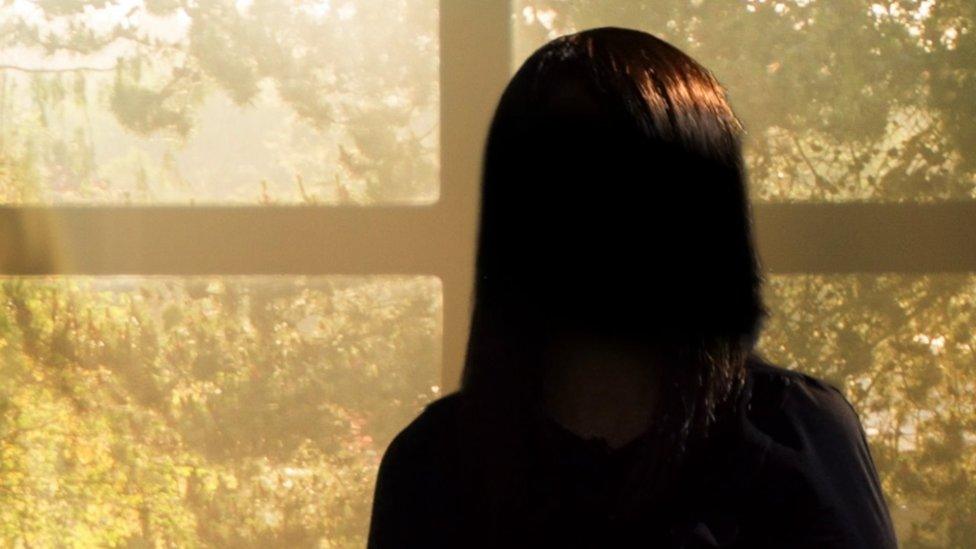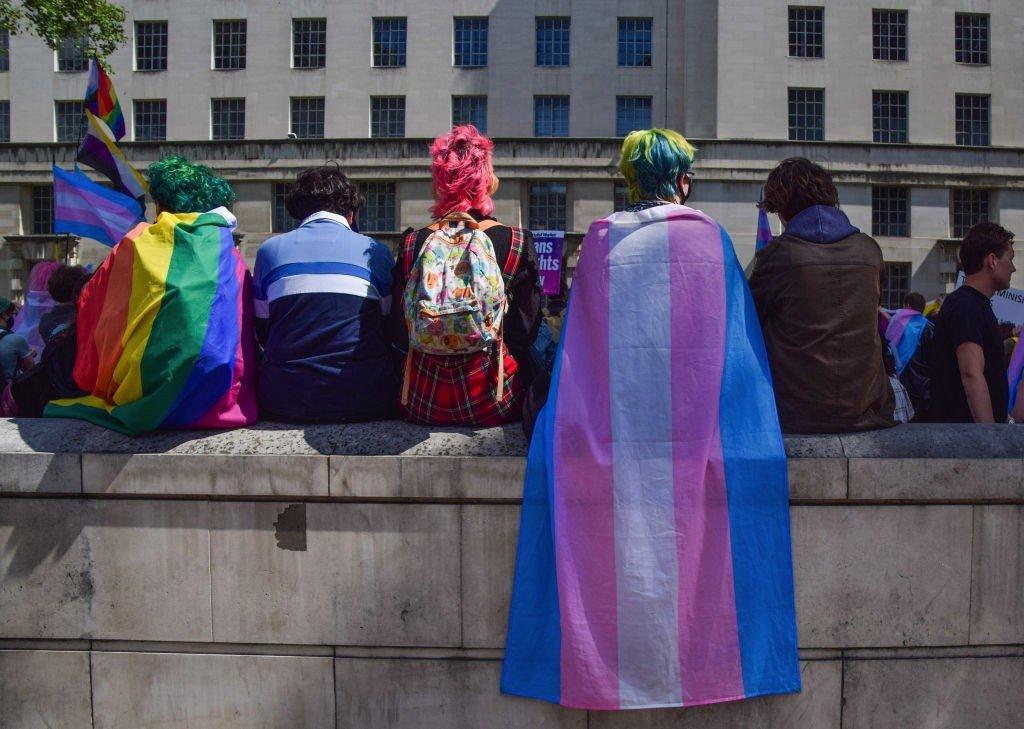Woman suing rape charity over transgender row
- Published

"Sarah" says she stopped going to group sessions, in Brighton
A woman who is suing a rape crisis charity says she felt unable to speak at a support group after a transgender woman began attending the same meeting.
"Sarah", who says she was raped in her 20s, stopped going to the sessions, saying she became uncomfortable sharing details of her past with the group.
She says the centre could have offered separate groups, telling the BBC: "I think my case is about women's rights."
The charity, Survivors' Network says it plans to vigorously defend the claim.
It says male victims of sexual violence are referred to neighbouring services, but trans women "are welcome into all of our women-only spaces".
However, Sarah's lawyers claim that by adopting a trans-inclusive approach - and not providing a session for women who were born female - the charity, in Brighton, failed to meet the needs of all sexual violence victims.
Sarah is bringing the case under the Equality Act, claiming indirect discrimination as well as victimisation and harassment. She said: "I think women have sex-based rights and protections and these are under threat at the moment from trans activism."
She told the BBC she had been groomed and sexually abused when she was a child and later, in her 20s, a man she knew raped her. She did not go to the police.
Last year, she knew she was going to have to come into contact with the man who attacked her. "I was finding it really hard to cope and I was having increased anxiety attacks," she says. "So I decided to approach Survivors' Network for help."
She says she felt an immediate benefit from the group sessions. "We had either been abused as children or had experiences as women. It was a very safe space to speak about the feelings we had been through."
She added: "We spoke a lot about how we were manipulated and coerced by men. I can't tell you how much it helped me mentally."
Sarah says a new person attended a session, whom she understood to be a trans woman. She said the person presented as typically male, wearing male clothing. "I was a bit taken aback. I decided I wasn't going to speak that week because I wasn't comfortable."
"I don't trust men because I have been raped by a man. I've been sexually abused by men. And I just don't necessarily trust that men are always who they say they are," she said.
However, she says the person running the session asked her to speak to the group. "I felt manipulated and coerced into talking," she said. "When I left the session I had a panic attack, I was absolutely distraught."
Test case
Survivors' Network says it learned of the impending legal action on social media and it has not yet received any legal paperwork to clarify the details and basis of the claim.
It said all survivors, including Sarah, had been assessed and received a copy of the group handbook, which says survivors should only speak if they feel comfortable. It says there was no obligation for Sarah to speak in the session.
It added: "In both the assessment and in the handbook, it is explained that all women, including trans women, are welcome in the women's only group. The claimant was made aware of Survivors' Network trans-inclusive position prior to attending the group."
However, Sarah says she felt the presence of the trans woman in the group changed the atmosphere and discussion. She says she is not transphobic, but feels she now can't use the service.
"I think it's fantastic that trans survivors feel that there is a safe space for them that they can go and seek help. But for me personally, a mixed sex space doesn't work."
She added: "I think having just one additional group for women who are born female would be the answer."

A protester with the transgender flag draped over them
In April, the Equality and Human Rights Commission issued guidance, external for organisations in England, Scotland and Wales.
It says that in certain places, such as hospital wards or changing rooms, providers can offer single sex services that "prevent, limit or modify" trans people from attending, if it is "a proportionate means of achieving a legitimate aim" and balances the needs of service users.
Sarah's lawyer, Kate Lea, says that while the guidance is welcome, it does not go far enough and clarification is needed from the courts. "We see this very much as a test case. We need further guidance in this area. We recognise that there are really difficult decisions to be made by service providers."
Meanwhile, Survivors' Network, which is funded by a number of bodies, including the Ministry of Justice and the NHS, said in a statement: "Continuing to deliver our services supporting survivors of sexual violence and abuse is of paramount importance and we want to reassure all our current survivors and anyone seeking support that we are still here for them."